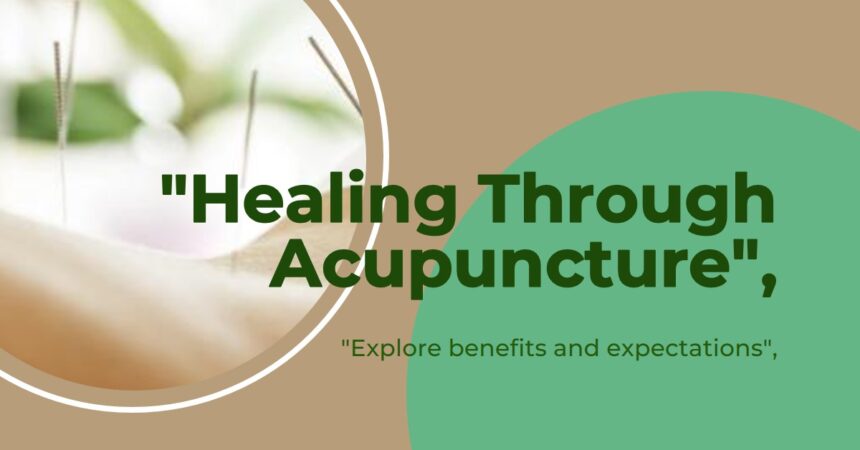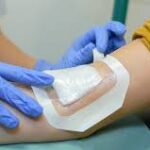Acupuncture has been practiced for centuries and is renowned for its ability to alleviate pain, reduce stress, and promote healing. As more people seek alternative treatments for accident-related injuries, acupuncture has gained prominence for its potential to complement traditional medical care. But while the benefits are often highlighted, it’s essential to understand any potential risks or side effects associated with acupuncture for accident recovery.
This article dives deep into the advantages, risks, and how you can make informed decisions about using acupuncture for accident recovery.
What Is Acupuncture and How Does It Help with Accident Recovery?
Acupuncture is a traditional Chinese medicine (TCM) practice that involves inserting thin, sterile needles into specific points on the body. These points are believed to stimulate the body’s energy flow, or “Qi,” and support the body’s natural healing processes.
For accident-related injuries, acupuncture can:
- Relieve pain by stimulating the nervous system and releasing endorphins.
- Reduce inflammation, improving blood circulation to injured areas.
- Accelerate healing of soft tissues like muscles and tendons.
- Address emotional trauma often associated with accidents.
According to a study published in the Journal of Pain Research, acupuncture was effective in reducing chronic pain by 50% in many patients, making it a viable option for accident victims dealing with prolonged discomfort.
Benefits of Acupuncture for Accident Recovery
- Pain Management
- Acupuncture targets pain pathways and helps alleviate discomfort caused by whiplash, fractures, or soft tissue injuries.
- Non-Invasive and Drug-Free
- Unlike medications, acupuncture doesn’t come with risks of dependency or severe side effects.
- Improved Mobility
- Many patients report better flexibility and reduced stiffness after sessions, especially in areas like the neck, shoulders, and back.
- Emotional Balance
- Accidents often lead to anxiety, depression, or PTSD. Acupuncture can improve mental well-being by balancing the body’s energy.
- Customized Treatment Plans
- Treatments are tailored to individual needs, addressing both physical injuries and emotional challenges.
Are There Risks or Side Effects?
While acupuncture is generally considered safe when performed by a licensed practitioner, some risks and side effects should be noted:
1. Common Side Effects
- Bruising or Soreness: Temporary bruising or soreness at needle insertion points is relatively common but resolves within a few days.
- Dizziness or Lightheadedness: Some individuals may feel lightheaded after a session, especially if they’re dehydrated or haven’t eaten.
2. Rare Complications
- Infections: Using non-sterile needles or poor hygiene practices can lead to infections. Always choose a licensed and reputable practitioner.
- Organ Injury: In extremely rare cases, needles inserted too deeply can puncture organs, such as the lungs, leading to conditions like pneumothorax.
3. Contraindications
- Bleeding Disorders: People with conditions like hemophilia or those on blood thinners should consult their doctor before undergoing acupuncture.
- Pregnancy: Some acupuncture points may induce uterine contractions, potentially leading to premature labor.
4. Emotional Release
- While emotional releases are generally seen as therapeutic, some patients might experience unexpected tears or memories resurfacing during a session.
Research-Based Insights into Safety
Studies consistently highlight the safety of acupuncture when performed by trained professionals. According to the British Medical Journal (BMJ), the risk of serious adverse events is less than 0.01% when acupuncture is done correctly.
How to Minimize Risks
- Choose a Certified Practitioner
- Look for practitioners certified by reputable organizations like the National Certification Commission for Acupuncture and Oriental Medicine (NCCAOM).
- Communicate Clearly
- Inform your acupuncturist about your medical history, medications, and specific injuries.
- Check Hygiene Practices
- Ensure the clinic follows strict hygiene protocols, including the use of single-use, sterilized needles.
- Avoid Overexertion Post-Treatment
- Rest and hydrate after your session to prevent fatigue or dizziness.
- Monitor Reactions
- If you experience severe pain, swelling, or other unusual symptoms, contact your healthcare provider immediately.
Who Should Avoid Acupuncture for Accident Recovery?
While acupuncture can benefit many, it might not be suitable for everyone. Avoid acupuncture if:
- You have a severe fear of needles.
- You have a pacemaker (as electro-acupuncture might interfere).
- You’re in the early stages of healing from open wounds or fractures.
Complementing Acupuncture with Other Treatments
For optimal recovery, acupuncture can be combined with:
- Physical Therapy: Strengthens muscles and restores movement.
- Chiropractic Care: Adjusts spinal misalignments caused by accidents.
- Massage Therapy: Reduces muscle tension and enhances relaxation.
FAQs
1. How soon after an accident should I start acupuncture?
It’s generally safe to start acupuncture within a few days of an accident, but consult your doctor to ensure it aligns with your overall treatment plan.
2. How many sessions will I need?
The number of sessions varies depending on the severity of your injury. Mild injuries may require 3-6 sessions, while chronic pain might need ongoing treatments.
3. Does acupuncture hurt?
Most people experience minimal discomfort as the needles are very thin. Many find the sessions relaxing.
4. Can acupuncture replace conventional treatments?
Acupuncture is best used as a complementary therapy alongside traditional medical care, not as a replacement.
5. Are the benefits of acupuncture long-lasting?
Yes, many patients report lasting relief, especially when combined with lifestyle changes and other therapies.
Conclusion
Acupuncture for accident recovery offers a holistic approach to healing, targeting both the physical and emotional aftermath of injuries. While the practice is generally safe, understanding potential risks and choosing a qualified practitioner are essential steps in your recovery journey.
Ready to explore acupuncture for accident recovery? What’s holding you back from trying this time-tested therapy?
Also know Ambulance Services in Bangalore: A Complete Guide to Emergency Medical Support





